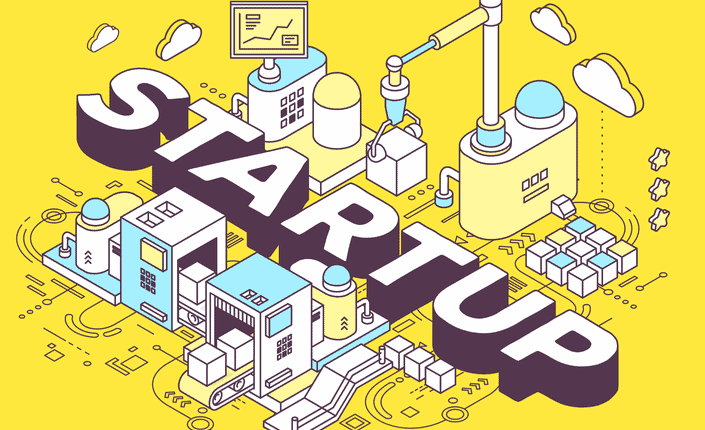
This article was written and published in Spanish and has been translated into English via Google Translate. Click here to read the original article.
The initiatives presented by the startups Celebriti (Spain), Eedi (Great Britain) and UBBU (Portugal) have been winners of the "Challenges in education, ProFuturo environment" program.
The call was launched by the ProFuturo program, an initiative of Fundación Telefónica and La Caixa, which aims to improve the quality of education for children who are in a vulnerable situation, with the support of Wayra as a hub for open innovation that connects technology startups with Telefónica whose mission is to bring innovation to the group and work together with entrepreneurs.
ProFuturo is a digital education program launched by Fundación Telefónica and La Caixa, whose mission is to reduce the educational gap in the world by providing quality digital education to children in vulnerable environments in Latin America, sub-Saharan Africa, and Asia.
Until last April 31, entrepreneurs with innovative projects in digital education were able to present their initiatives to the program "Challenges in education, ProFuturo environments", being a requirement to have a product developed, with real use and demonstrated impact.
The initiative wants to respond to challenges such as lack of connectivity and access to energy
These initiatives had to respond to the daily challenges that ProFuturo faces: challenges derived from the lack of connectivity and access to energy; low pedagogical and digital level of teachers and personalization of learning for teachers, boys and girls.
For the call, five areas of interest were established: Artificial Intelligence and Learning Analytics applied to education; energy, generation and sharing; connectivity, provision and optimization; hardware and devices, more interactive, renewable and low cost, and innovative educational and digital solutions for teachers and students. The call has had a great reception worldwide in the community of entrepreneurs, adding a total of 65 applications.
The ranking was led by Latin America with a total of 37 entries from Colombia, Peru, Chile, Mexico, Argentina, Ecuador and Venezuela; followed by Europe, with a total of 26 applications from Spain, Great Britain, Portugal and Finland; Applications have also been received from the African continent (Ghana) and another from Asia (India).
In the first phase, eleven initiatives were chosen from Colombia, Spain, Finland, Ghana, Great Britain and Portugal after a selection process that took into account technical, functional, pedagogical and commercial / scalability evaluation criteria.
Among the finalist initiatives, projects that combine gamification, learning based on challenges, attention and mental training stand out.
In general, almost all the proposals incorporate, to a greater or lesser extent, analytics and algorithms to offer adaptive learning to students.
Many of the projects are endorsed from the field of neuroscience, the measurement of learning rhythms and the understanding and adaptation of itineraries.
They have also presented classroom programming solutions for the teacher, which allow visualizing the learning process of their students to offer a response and intervene in their development and proposals of computational thinking through STEAM content.
Other proposals of interest bet on the development of creativity and participation, where teachers and students create games together on various subjects and challenge their peers. And finally, projects related to computational thinking with a final staging towards the maker world, where students design, code and construct with their hands a digital solution to an identified problem, stand out.
Winners of the ProFuturo and Wayra call
The Spanish startup Cerebriti has presented a project based on gamification, which allows teachers and students to create and share their own games, enhancing creativity and teamwork.
For its part, Eedi (Great Britain) stands out as an evaluation and recommendation solution that, through digital questionnaires, identifies cognitive deficits, which are shown to the teacher to know the general and particular state of his students, and at the same time proposes the student and the teacher adapted and personalized training itineraries.
Finally, the UBBU initiative (Portugal) is a platform that allows students to start in computer thinking, guided in their learning by the teacher (especially for non-technologists), who is able to visualize the progress and difficulties of their students.
These three winning initiatives will have a working space for 6 months in one of the Innovation Hubs of Wayra (Telefónica) that will allow them to design and deploy a pilot in the schools where ProFuturo is working.
In addition, the winners will potentially have visibility in a teaching community of more than 300,000 teachers, more than 20,000 schools and 8 million children from 28 countries in Africa, Latin America and Asia, where ProFuturo is already present.
The development and deployment of pilot projects in schools will take place between August and November, a period in which the social and educational impact and the functional value of the proposal will be analyzed, as well as its potential scalability in the ProFuturo program.
This article was written and published in Spanish and has been translated into English via Google Translate. Click here to read the original article.
Join us in Madrid, November 12-15 for the Global Online Marketplaces Summit.